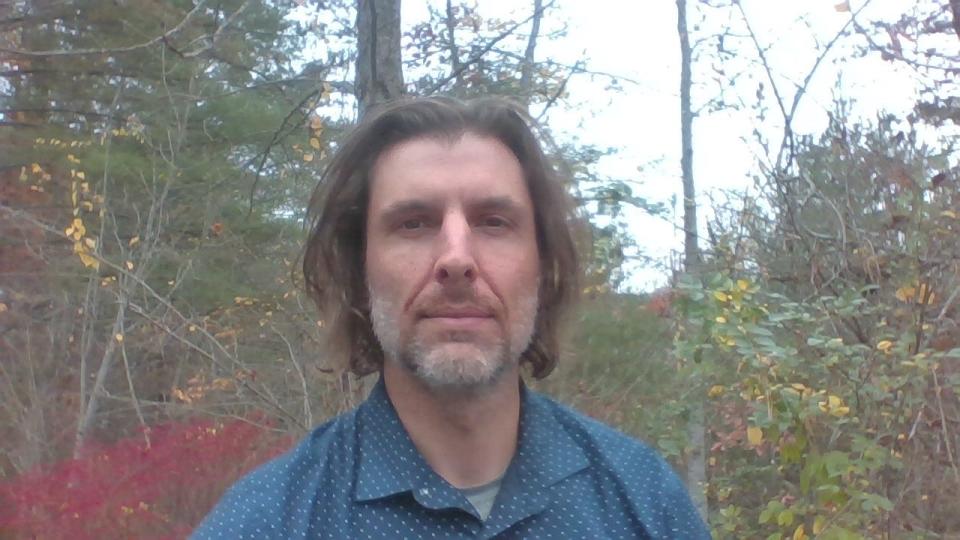Opinion: Chuck Edwards' Stop Pot Act focuses attention in wrong direction
- Oops!Something went wrong.Please try again later.
My initial reaction to Rep. Chuck Edwards’ open letter to the Eastern Band of Cherokee Indians threatening to withhold federal funding via his proposed Stop Pot Act was similar to the one expressed by Mr. Brothwell in his recent opinion piece. After further thought, I think attempting to place Edwards missive in the larger historical context of the U.S. government's dealings with Native Americans is an academic exercise, and a distraction from the issue that should bother those of us not living on the Qualla Boundary.
This is not to say I no longer see the tone of Edwards letter as condescending and paternalistic. I am, however, buoyed by the fact that virtually every tribal member I’ve spoken to couldn’t have cared less about the Congressman’s opinion. One member voted for recreational cannabis, but against allowing alcohol on the Boundary.
The only real concern I heard from those against the measure, or reticent about it, was the threat, as Edwards put it, of “drug tourism.” This, I think, is a valid concern, but one they wouldn’t have in 80% of the country, where recreational or medical cannabis are already legal. Ultimately, the Cherokee are more than capable of speaking for themselves on this matter. In fact, I might argue they already have.
More: Eastern Band of Cherokee vote to legalize recreational marijuana; only place in NC
More: Opinion: Chuck Edwards' Stop Pot Act abuses his power against Eastern Band of Cherokee
The question worth asking is this: Why is Edwards trying to paint marijuana as a central cause of the “drug addiction and mental illness” crises we are facing in Western North Carolina? He claims it is because it “can result in short- and long-term danger of addiction, altered brain development, chronic psychosis disorders and others.”
According to him, he’s waging a righteous war against an addictive substance that is harmful to the brain and body of the user, and to our medical system at large. This is ironic given that his past campaigns have accepted money from the alcohol lobby and that he made his living from fast food. And it’s certainly inconsistent for him to say he cares about mental illness and mental health access when he spent the better part of his career in the N.C. Senate blocking Medicaid expansion.
The Stop Pot Act aims to withhold federal highway money from states or territories that allow recreational cannabis. Recreational cannabis is presently legal in 23 states, and in our state, favored by a majority regardless of party affiliation. I’m no math major, but I don’t think he’s got the votes. Those of us living outside the Qualla Boundary and in Edwards district should be bothered by the fact that he’s proposing dead-on-arrival, self-serving legislation.
The Stop Pot Act allows Edwards to ignore the “drug addiction and mental illness” crises affecting Western North Carolina in perpetuity. It will never pass, and instead of becoming an expert on the actual causes of and solutions to these intertwined crises, he is fashioning an enemy out of a relatively benign substance that checks the boxes of being illegal and temporarily altering consciousness. The Stop Pot Act is gimmicky drivel that addresses nothing we want or need.
Most disconcerting is the fact that this is where we are now politically in North Carolina, and it’s only going to get worse as we march towards relatively monopolized districts. Elected officials are free to confidently propose legislation incongruent with their past and present, void of substance, and with no chance of passage as they sleep soundly in their noncompetitive, gerrymandered districts content to be inconsistent and uncurious, and to neither learn nor accomplish things. The standard one must meet to get elected in our district these days is being more qualified than Madison Cawthorn. This is a low bar.
Edwards' missive can serve as another example of a white man telling a historically subjugated group that he’s their friend while stabbing them in the back, but this focuses attention in the wrong direction. We should recognize his letter and the Stop Pot Act for what they are: empty words and pointless bills that can be conflated with a genuine attempt to help from an elected official with no real pressure to accomplish anything.

Jarred Tanksley is a cancer doctor who lives in Haywood County, likes to hike, and would rather have his voice heard at the ballot box.
This article originally appeared on Asheville Citizen Times: Chuck Edwards is hypocritical in fight against recreational marijuana

